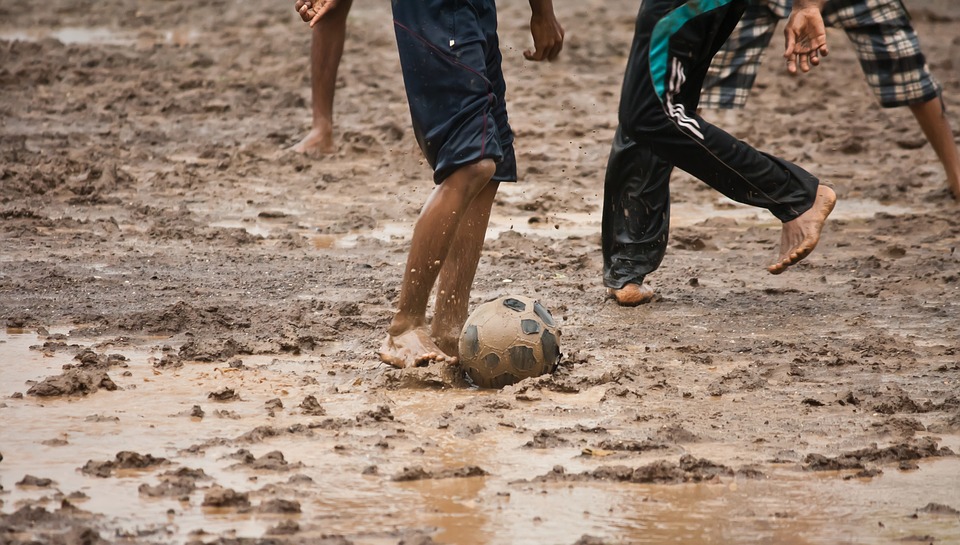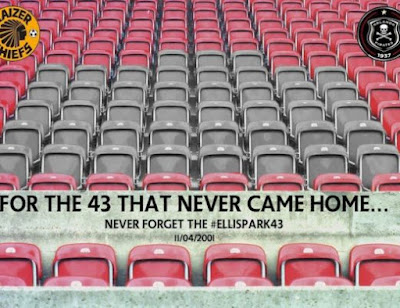The ball is mine - The suspension of the Trinidad and Tobago Football Association by FIFA
The ball is mine
Many of us who played football on the street as kids will remember that one guy who was not good at the game but owned the ball. Ownership of the ball bestowed many powers on him. He selected his team first, coached both teams, wrote the laws of the game, was the referee and everyone wanted to be his friend. No one had the courage to tell him when he was offside. In modern day football, he would be the Video Assisted Referee ("VAR") as well. The suspension of the Trinidad and Tobago Football Association (“TTFA”) by the Federation of International Football Associations (“FIFA”) reminds me of that guy who always said, the ball is mine.
 |
| photo credit - Ben Curtis / AP |
The TTFA
The TTFA was created under the Laws of Trinidad and Tobago by the Trinidad and Tobago Football Association Act No. 17 of 1982 (“the TTFA Act”). One of its objectives is to regulate and control the conduct of Football in Trinidad and Tobago under the FIFA system. It is bound by the FIFA Statutes, in particular articles 57 and 59 which require all parties involved in football to resolve their disputes outside national courts i.e. via private arbitration.
The appointment of the FIFA normalisation committee
On 24 November 2019, the TTFA elected members of the Executive Committee of the TTFA. In February
2020 FIFA sent a delegation to Trinidad and Tobago to meet with the Executive
Committee of the TTFA. A month later, FIFA informed the TTFA that it had
resolved to appoint a normalisation committee to take over the running of the
TTFA because FIFA was concerned with the financial management and governance of
the TTFA. The normalisation committee had sweeping powers which included the power
to review and amend TTFA statutes (subject to approval by the TTFA congress)
and organising and conducting elections of a new TTFA Executive Committee.
Additionally, the normalising committee would act as the electoral committee
and its decisions would be final and binding.
The aborted appeal to the Court of Arbitration for Sport
The appointment of the normalisation committee effectively rendered the just elected TTFA executive committee members powerless. They accused the normalisation committee of interfering with the operation of the TTFA’s bank account, and exposing the TTFA to potential lawsuits among other things. They approached the Court of Arbitration for Sport (“CAS”) appealing against the appointment of the normalisation committee.
Before the CAS hears a matter, it
requires the parties to pay the advance of costs. The respondent (FIFA in this
case) can nominate the appellant to pay the respondent’s share of the advance
of costs. Additionally, the respondent can request that it only files its
answering papers after the advance of costs has been paid in full, or the
appellant has paid at least its share of the advance of costs. If the advance
of costs is not paid, the appeal is deemed to have been withdrawn. FIFA generally
does not, and refused in the TTFA appeal to, pay its share of the advance of
costs. Furthermore, FIFA requested that the time limit to file its answering
papers only start running upon payment of the advance of costs by the TTFA. The
TTFA viewed FIFA's conduct as an attempt to frustrate the arbitration and withdrew
its appeal before the CAS on 18 May 2020.
The claim before the High Court
After withdrawing its appeal before the CAS, the TTFA filed a claim against FIFA before the court in Trinidad and Tobago. In the claim, the TTFA challenged the enforceability of certain articles of TTFA’s Constitution, FIFA Statutes and consistency with the TTFA Act, and the legitimacy of the appointment of the normalisation committee.
FIFA opposed the claim before the court. It filed an application which essentially challenged the jurisdiction of the High Court of Trinidad and Tobago over the dispute and FIFA. It argued that the matter was a private dispute that should be dealt with by private arbitration before the CAS in terms of the FIFA Statutes. Despite the issue of the appointment of the normalisation committee being before the court, FIFA’s Council went on to ratify the decision on 25 June 2020. The court (per Madam Justice Gobin) viewed this as conduct that “… demonstrated scant regard for the judicial process and the courts of [Trinidad and Tobago]” In a well-reasoned judgement, the court dismissed FIFA’s challenge of the court’s jurisdiction for several reasons including the following:
- The incorporation of provisions of the FIFA Statutes (article 57 and 59) into the TTFA Constitution did not oust the jurisdiction of the court.
- The court was required to determine whether TTFA can contract out of the TTFA Act to give FIFA powers to override processes prescribed in an Act of Parliament or whether TTFA’s contractual undertakings are subject to the laws of Trinidad and Tobago.
- FIFA had gone beyond mere procedural matters in its papers. It had ventured into the merits and by so doing implicitly submitted to the jurisdiction of the court.
- Arbitration (which in any event appeared impossible given FIFA’s challenge to the authority of certain persons to act on behalf of the TTFA) was not appropriate because there was an issue about the legitimacy of powers exercised by FIFA under article 8(2) of the FIFA Statutes and its consistency with a law passed by legislators in Trinidad and Tobago and this was an issue for the court to decide, not the CAS. Additionally, FIFA paralysed the arbitration process by its refusal to pay its share of the advance of costs and requesting that the time to file its answer only starts running when the TTFA paid the advance of costs.
The court ruled that it would hear the merits of the case and ordered FIFA to file its defense and pay the TTFA’s costs. The court reminded FIFA that it was not above the law and there may be limits in terms of the laws of Trinidad and Tobago to the validity of the mechanisms that FIFA employed to achieve its goals or objectives.
You need my ball to play the game
The court noted FIFA's threats of “severe consequences to which TTFA [was] exposed as a consequence of [taking FIFA to court] in direct breach of the terms of its membership of FIFA…” Sensing that FIFA was that guy who owned the ball, Madam Justice Gobin, remarked that “I do not expect FIFA to walk off the field or to take its ball and go home if after full ventilation of the issues, this court were to confirm the primacy of an Act of the Parliament of the Republic of Trinidad and Tobago over the FIFA Statutes.”
Extra time
On 20 August 2020, FIFA
issued a statement confirming that an appeal against the decision of the
court would be filed on the same day. In the same statement, FIFA issued a threat
to the TTFA to withdraw the case before court or face severe consequences. FIFA initially gave the TTFA until 16 September 2020 to withdraw the case before the court. This was later extended to 23 September 2020. The
TTFA, perhaps tired of that guy and his ball, did not surrender. It did not
withdraw the case before the court. [NB. There are reports that the TTFA indeed withdrew the case, but outside the deadline].
Game over
FIFA, being the owner of the ball, author of the rules and referee, decided that the game was over. It took its ball and went home. FIFA suspended TTFA on 24 September 2020.
There may be merit to the financial mismanagement and poor governance within the TTFA as alleged by FIFA as the TTFA itself is no stranger to controversy. However, that is a side issue. The issue with FIFA here is, no matter how noble its normalisation committee intervention was, it wanted to have it its way only and no one would stop it. Not even the court.
The issue of the lawfulness of its intervention (interference some may argue) through the normalisation committee was still before the court. Instead of FIFA respecting the judicial process and dealing with the merits of the dispute, FIFA decided to flex its muscles (an abuse of power really) to force the TTFA to toe the line. In its statement issued on 24 September 2020, FIFA says it suspended the TTFA “due to grave violations of the FIFA Statutes.” With respect, standing up to the bully through a judicial process cannot be said to be a grave violation of the FIFA Statutes. If anything, FIFA’s attitude in this matter exposes a lack of appreciation for the rule of law. FIFA was not prepared to let the judicial process run its course. As the owner of the ball, FIFA wanted to apply its own laws of the game and choose its own referee. The TTFA resisted that.
TTFA is now out in the cold
The TTFA has now been frozen out. Just
like our childhood games on the street, the rest of the team members will be
angry with the person who challenged the owner of the ball. They will demand
that she or he says sorry to the owner of the ball for the game to continue.
When the apology is finally offered, the owner of the ball will not accept that
she or he was also wrong. The answer is always “I forgive you. You see,
without me there is no game. The ball is mine.”



Comments
Post a Comment